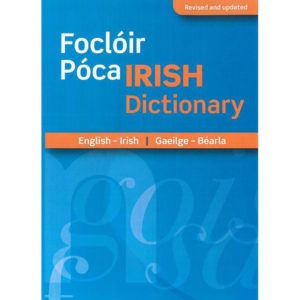Fáilte (Welcome) › Forums › General Discussion (Irish and English) › Irish pluralization rules › 36861
There are no definite rules, unfortunately. One thing that is somewhat confusing for some beginners is that when we talk about “declensions”, these only determine the genitive form, not the plural. Additionally, many plurals change depending on what dialect you are speaking. Some words have several different acceptable plurals. To summarize, these are the various common ways in which a plural can be formed:
So-called “weak plurals” (this means that the nominative plural and genitive plural will not be the same, usually the genitive plural being the same as the nominative singular):
-Slenderizing the final consonant (in the case of first declension nouns, which are all masculine – ex. clár -> cláir)
-Changing -ach to -aigh or -igh in masculine first declension nouns or -aí in feminine (ex. sionnach -> sionnaigh)
-Adding -a (this is common for 2nd declension nouns which are all feminine, which often requires that the last consonant be broadened, but also occurs in first declension masculine nouns as well – ex. cos -> cosa)
So-called “strong plurals” (this means that the nominative plural and genitive plural are the same)
-Adding -aí or -í (ex. píosa ->píosaí)
-Adding -anna or -eanna
-Adding -na (ex. monarcha -> monarchana)
-Adding -ta or -te (ex. rian -> rianta)
-Adding -tha or -the (ex. ceannaí – ceannaithe)
-Adding -acha, -eacha, -neacha, etc (ex. ainm – >ainmneacha) (note these are common alternate plurals in Conamara and usually pronounced like there is an í on the end (i.e. clárachaí)
-Syncope (this means loss of a vowel) and adding -a, or -e (ex. bóthar -> bóithre)
There are also some plurals which are either irregular or fit into paradigms that are somewhat rare (ex. bó -> ba, in nominative plural and bóÂ in genitive plural). There might also be some that I forgot to mention.
Needless to say, this is a complex subject and you more or less should commit to learning the plural of each noun. As you get more experience you’ll identify certain paradigms which help you guess at a plural if you don’t know it. There are also some general rules that help in certain instances:
-All multi-syllable nouns ending in -acht or -eacht have the -aí plural
-Most if not all nouns ending in -aí or -í in the singular have the -the plural
-Most feminine nouns ending in -air will have a syncoped -acha plural (i.e. cathair -> cathracha)
Good luck!
